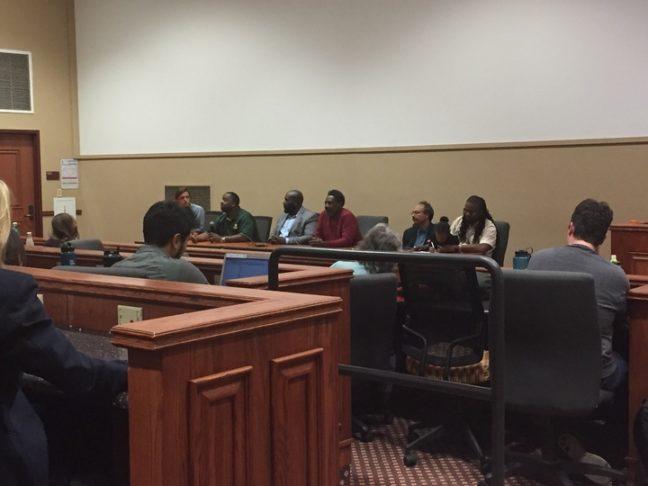The Nelson Institute for Environmental Studies debuted its new short film, “Break the Cycle: The Power of Food to Interrupt the Revolving Prison Door,” in a panel led by Building Food Justice Capacity project Monday.
The film discusses how to break the cycle of systemic incarceration of minorities through food systems.
According to the film, black men make up about 6 percent of the state of Wisconsin. They make up 52 percent of the Wisconsin state prison system and are incarcerated 20 times more than white men in Dane County. When released, many struggle with finding housing, employment and a sense of community.
Challenges to employment after imprisonment incite movement to change application process
Building Food Justice Capacity, based in south Madison, is a course run through the University of Wisconsin. The project engages formerly incarcerated citizens in building entrepreneurial networks in urban agriculture while simultaneously improving food access to the south Madison community. Building Food Justice Capacity partners with Neighborhood Food Solutions and Nehemiah.
Neighborhood Food Solutions and Nehemiah both give re-entering individuals the knowledge and resources to sell their own organic produce in the Madison community.
Men of color are disproportionately incarcerated in Dane County and around the country, Alfonso Morales, urban and regional planning professor, said in the film. This “frays the social fabric” in Dane County.
There needs to be a better transition between incarceration and day to day life, Anthony Cooper, director of Reentry Services at Nehemiah, said in the film.
“When you have many people who cannot see their families regularly, who cannot hold jobs due to prison records or criminal histories, then that erodes the quality of relationships that people can have with each other in [communities with high incarceration rates],” Morales said.
Mental health advocates discuss alternatives to incarcerating the mentally ill
Adjusting to life after incarceration is a common problem but also an opportunity for people to develop relationships within the community through exploration of food systems, Morales said.
Re-entry into the society through urban agriculture allows former inmates and especially people of color to be received into the community and immerse themselves in education through redirection from incarceration to agriculture, Minister Caliph Muab’El of Breaking Barriers Mentoring said.
Urban agriculture also allows for former inmates to regain their humanity and gives them a chance to become a part of the community, Muab’El said in the film.
“[Neighborhood Food Solutions] seeks to redevelop people’s skills by redeveloping their relationship to their [community],” Morales said. “There’s nothing like being in the soil of a place and understanding the process by which we produce food from that place.”
Sustainability programs reduce food waste, help manage insecurity
The process of re-entry starts with the community itself, Cooper said. Through community partnerships, investment in individuals coming out of prison and job opportunities, they can grow.
The goal of re-entry is to eventually move individuals away from the stigma of incarceration, Cooper said.
“There shouldn’t be this coalition between prison and community,” Robert Pierce of Neighborhood Food Solutions said. “It’s best to do what we’re doing [at Neighborhood Food Solutions] and work at that and then at some point to see how we can make some sort of partnership [with former inmates].”


















